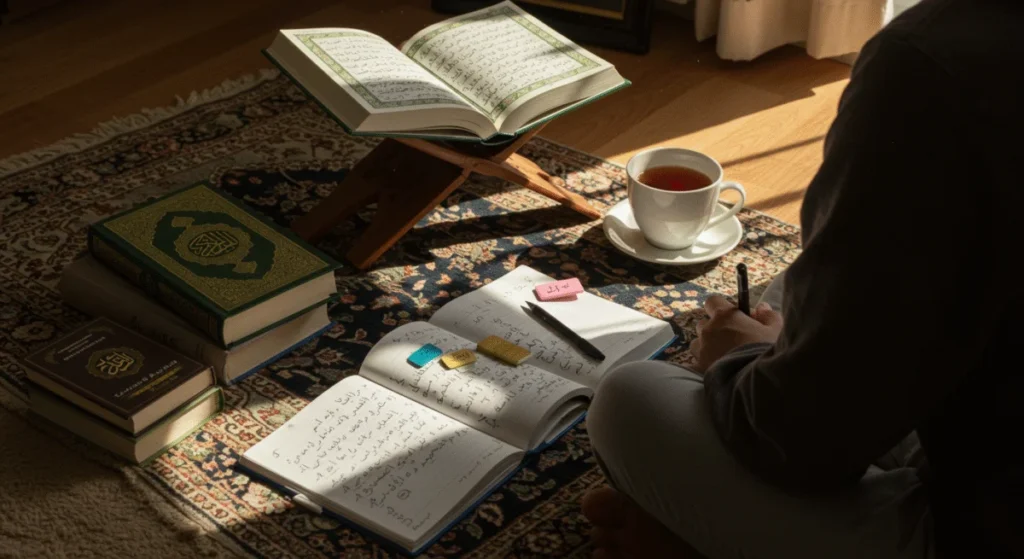
Learning Arabic is not just about mastering a new language — it is about unlocking a door to deeper understanding, connection, and spirituality. For Muslims, Arabic is the language of the Quran, the language of divine revelation, and a means of drawing closer to Allah.
If you’ve ever wondered why Arabic matters so much in Islam — even for non-native speakers — this article is your starting point.
🌟 1. Arabic Is the Language of the Quran
Arabic wasn’t randomly chosen for the Quran. It’s a language rich in meaning, depth, and nuance. Each word, root, and structure holds multiple layers of significance.
“Indeed, We have sent it down as an Arabic Qur’an so that you may understand.”
(Surah Yusuf 12:2)
By learning Arabic, even at a basic level, you can begin to understand the original message without relying entirely on translations.
🧠 2. Arabic Connects You to Authentic Islamic Knowledge
Most classical Islamic texts — including Hadith collections, tafsir, fiqh books, and the works of scholars — are written in Arabic. Understanding the language gives you direct access to this rich heritage.
Even learning basic Arabic terms can help you:
- Understand khutbahs and Islamic lectures
- Follow along in Islamic books and apps
- Grasp core theological and spiritual concepts
You stop reading about Islam, and start reading from Islam.
💬 3. It Enhances Your Salah and Daily Worship
Imagine understanding what you say in every rak‘ah — the meanings of Subhana Rabbiyal Azeem, Iyyaka na‘budu, and Allahu Akbar. Learning Arabic transforms salah from a ritual to a conversation with your Creator.
🧎 Tip: Start by learning the meanings of common phrases in your prayer. Over time, your connection to worship will deepen naturally.
🌍 4. Arabic Is a Bridge to Muslim Cultures Worldwide
Arabic is spoken across 25+ countries and understood in many more. Learning the language opens doors to:
- Rich Islamic history and literature
- Diverse cultural perspectives
- Travel and communication in the Muslim world
Even basic conversational Arabic helps you engage with the global ummah.
📈 5. It Strengthens Your Identity and Confidence as a Muslim
Many converts or Muslims in non-Arab countries feel disconnected from the core of Islamic practice. Arabic becomes a way to reclaim that connection — to the Quran, to the Prophet ﷺ, and to Islamic tradition.
It builds a stronger spiritual identity and boosts your confidence in practicing and sharing your faith.
🎯 Where to Start?
You don’t need to become fluent to start benefiting. Begin with:
- The Arabic alphabet
- Basic Quranic vocabulary (100–200 essential words)
- Listening to Arabic recitation + reading translation
- Enrolling in beginner Arabic courses (e.g., Quranic Arabic, Madinah Books, etc.)
💡 Focus on Quranic Arabic first — it’s easier than spoken dialects and directly tied to worship.
🌈 Conclusion
Arabic isn’t just a language to learn — it’s a path to spiritual clarity, connection, and transformation. It brings you closer to the original message of the Quran and gives you tools to grow in knowledge and faith.
You may start with letters and words, but soon you’ll find yourself uncovering meanings that touch your heart, shift your mindset, and inspire your soul.
Arabic is not a barrier — it’s an invitation.
Take that first step. The Quran is waiting.